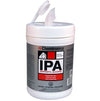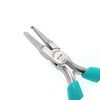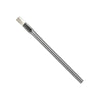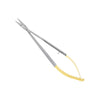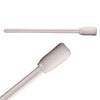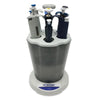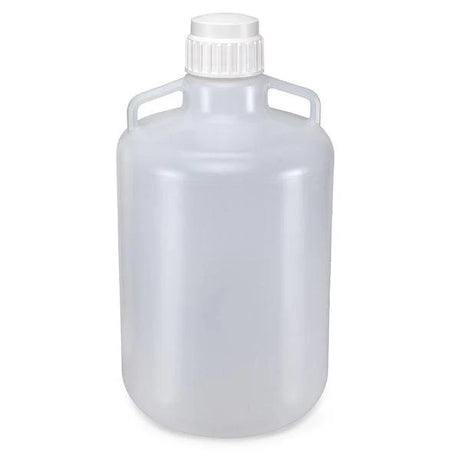- No products in the cart.
The Importance of Quality Control: Ensuring Safe Storage with Carboy Containers
Apr
12
2024
Carboys, those ubiquitous round containers, are a staple in many industries. From storing chemicals in laboratories to fermenting beverages in breweries, their versatility makes them a popular choice. But what separates a safe and reliable carboy from a potential hazard? The answer lies in quality control.
Understanding Carboys and Their Applications
Carboys are typically made from high-density polyethylene (HDPE) or polyvinyl chloride (PVC). They come in various sizes, with capacities ranging from a few liters to tens of gallons. Their chemical resistance and lightweight design make them ideal for storing a wide range of liquids, including:
- Chemicals: Acids, bases, solvents, and other hazardous materials commonly used in laboratories and research facilities.
- Beverages: Beer, wine, kombucha, and other fermented beverages during production and storage.
- Food-grade liquids: Water, juices, syrups, and other consumable liquids.
- Pharmaceuticals: Ingredients and solutions used in the pharmaceutical industry.
The Importance of Quality Control in Carboy Manufacturing
Carboys, especially those used for storing hazardous or consumable liquids, require stringent quality control measures throughout the manufacturing process. Here's why:
- Safety: Faulty carboys can lead to leaks, spills, and even explosions, posing a significant safety risk.
- Product Integrity: Improperly manufactured carboys can leach chemicals into the stored liquids, compromising their quality and potentially making them unusable.
- Durability: Carboys need to withstand the weight of the contents, as well as potential impacts or drops during handling.
- Consistency: Consistent quality ensures carboys perform reliably and meet industry standards.
Key Quality Control Measures for Carboy Production
Several crucial quality control measures are implemented during carboy manufacturing:
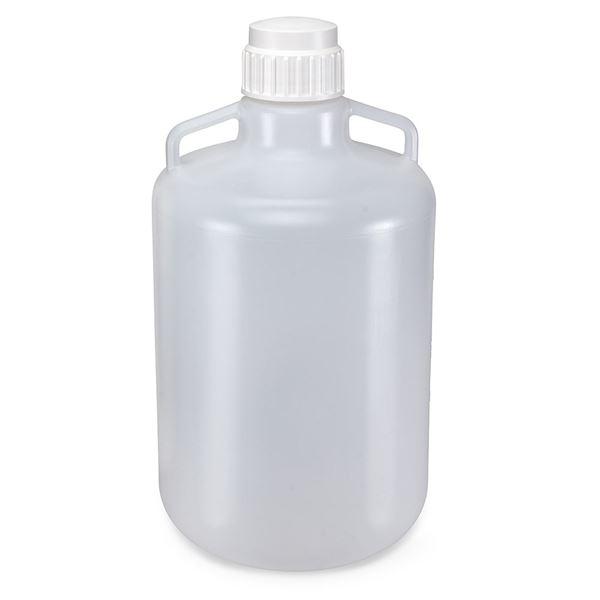
- Raw Material Inspection: The quality of the raw plastic used is vital. Reputable manufacturers ensure the HDPE or PVC used meets specific grade requirements for strength, chemical resistance, and intended applications.
- Blow Molding Process Control: Carboys are typically formed using blow molding. This process involves precisely controlling factors like temperature, pressure, and mold design to ensure uniform wall thickness and a structurally sound container.
- Leak Testing: Every carboy undergoes rigorous leak testing, often using pressurized methods, to identify and eliminate any potential for leaks.
- Stress Testing: Carboys are subjected to stress tests to ensure they can withstand the intended weight and pressure of the stored liquids. This helps prevent breakage or deformation during use.
- Visual Inspection: Trained inspectors meticulously examine carboys for any surface defects, imperfections, or inconsistencies that could compromise their integrity.
- Compliance Testing: Manufacturers ensure carboys comply with relevant industry standards and regulations, such as those set by the Food and Drug Administration (FDA) for food-grade containers or the Department of Transportation (DOT) for hazardous material storage.
Additional Considerations for Safe Carboy Use
While quality control during manufacturing is essential, it's equally important to ensure safe carboy use:
- Choosing the Right Carboy: Select carboys specifically designed for the intended application. Chemical compatibility charts can help identify the appropriate material for specific liquids.
- Proper Handling: Use caution when handling carboys, especially when full. Employ proper lifting techniques and avoid excessive force or dropping.
- Storage Conditions: Store carboys in a cool, dry, and well-ventilated area, away from direct sunlight and heat sources.
- Regular Inspection: Regularly inspect carboys for any signs of wear, cracks, or damage. Replace any compromised carboys immediately.
- Disposal: Dispose of carboys responsibly according to local regulations.
Looking to Purchase High-Quality Carboys?
If you're looking for top-of-the-line carboys for your laboratory or industrial needs, look no further than Lab Pro https://labproinc.com/pages/carboys. They offer a wide variety of carboys in various sizes and materials, all manufactured with the highest quality control standards. Their carboys are ideal for storing chemicals, beverages, food-grade liquids, and more. Visit their website or contact them today to learn more about their selection and find the perfect carboy for your application.
Conclusion: Quality Control for Peace of Mind
Carboys offer a convenient and versatile solution for storing various liquids. However, their safe and effective use hinges on stringent quality control measures during manufacturing. By prioritizing quality control, manufacturers ensure carboys meet the highest safety standards and provide a reliable storage solution. For users, understanding quality control practices and implementing proper handling procedures further guarantees the safe and effective use of carboys. By working together, manufacturers and users can ensure carboys continue to be a valuable tool across diverse industries.
For over 40 years, Lab Pro Inc. is your steadfast source for premium cleanroom wipes, hand tools, lab equipment, chemicals, and PPE apparel. Trusted by 503B outsourcing facilities, aerospace industries, medical device companies, and laboratories globally, we epitomize exceptional quality in every product. Experience the convenience of next day service in California. Contact us online or at 888-452-2776 to explore solutions tailor-made for the laboratory industry. Elevate your experiments with Lab Pro Inc. – your partner in precision and excellence.









